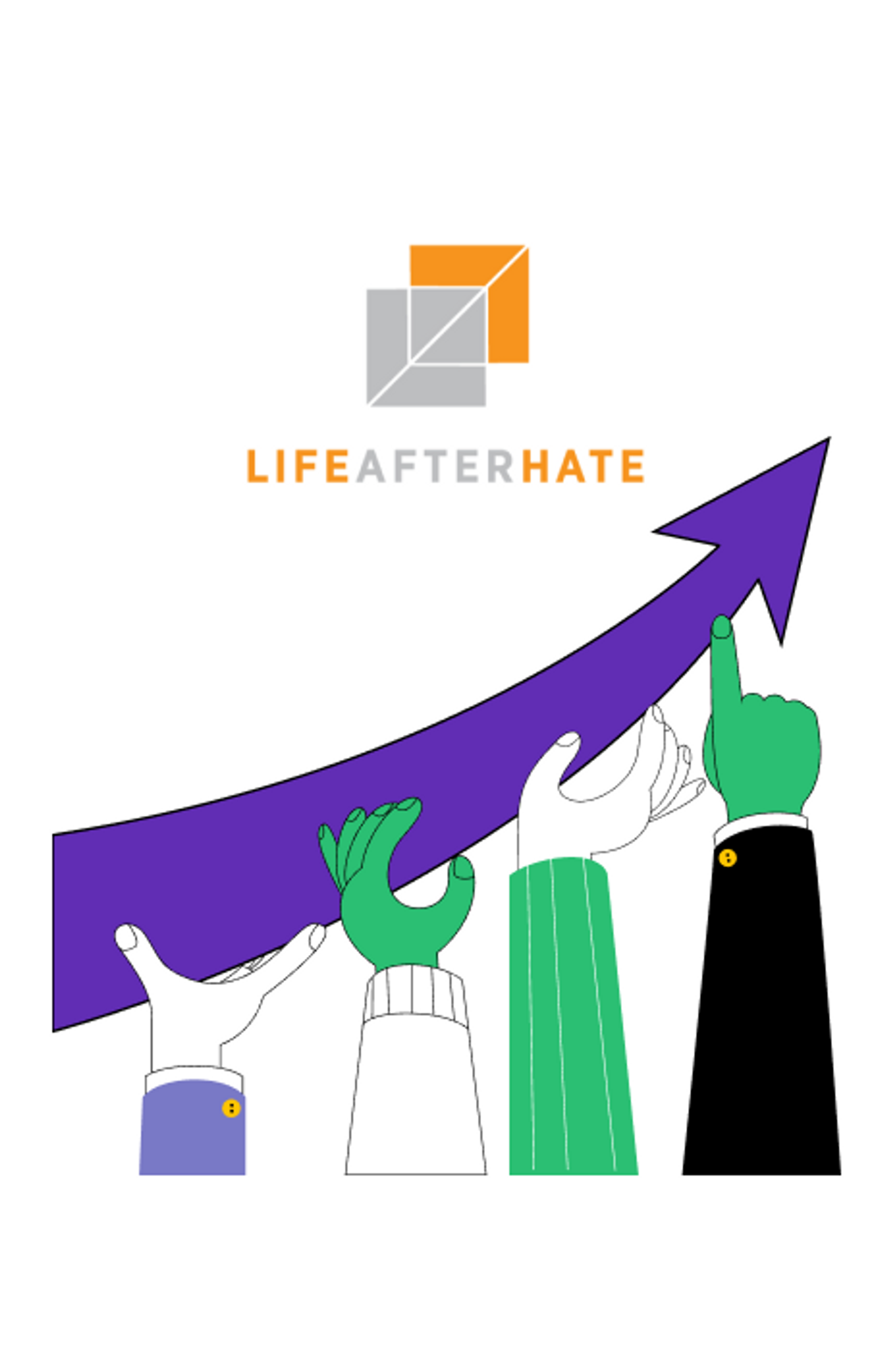
The future of Life After Hate
As the need for Life After Hate and its services continues to grow, so too must our work. The one-on-one relationships, case management, and peer mentoring we provide to those looking to leave lives of violent extremism will always be core to who we are and what we do. As such, it has taught us a great deal, particularly during recent analyses of our data and programs, on how to build on our successes to date to develop new initiatives that can have an impactful response to violent extremism in a meaningful way.
Currently, LAH programming focuses on five key components: 1) risk and threat assessment; 2) case management; 3) skills training; 4) social support; and 5) mental health services. In previous years, efforts were largely focused on social support. To truly fulfill our mission, Life After Hate’s client programming will focus on all five areas.
In addition to growing our client services, over the next three years, Life After Hate is focusing its work on:
- Research – Harnessing the potential of Life After Hate’s internal data collection and analysis work to share with the field’s best and promising practice, as well as lessons learned from our work to date. This level of sharing and transparency will allow others to focus on work that has the greatest impact.
- Community Engagement – From Life After Hate’s current work, we know the incredible impact family and friends have in getting an individual to move toward disengagement. Building on our work with the law enforcement (LEO) community, Life After Hate is exploring ways to develop and deploy educational materials, online courses, and explainers for family members, friends, the LEO community, and employers to identify signs of violent extremism and to understand how to help those in need. Not only does this work focus on specific areas such as antisemitism, but it will help communities understand radicalization (early indicators, early engagement, full engagement), help explain how to set boundaries and appropriate consequences with loved ones, and the necessity of care. All are necessary if we are to truly change community behavior beyond the Former.
- Public Awareness – Building on our ongoing public engagement work, Life After Hate is leveraging the power of social media and its networks by deploying a series of public awareness campaigns that focus on those considering leaving violent extremism. This includes using “counter-narrative” stories from Formers in our network (compiled as part of a focused oral/video history initiative LAH is undertaking).
- Fellowship Programs – In the past LAH conducted training programs with mental health professionals to build stronger relationships with concerned volunteers across the nation. As the counseling needs for those looking to exit VFRE grows more complex, Life After Hate sees future initiatives that will provide fellowship opportunities to those seeking careers in psychological counseling or social work; where they will gain first-hand knowledge and experience working with VFRE before they are licensed to practice.
(Patrick Riccards is the executive director and CEO of Life After Hate.)